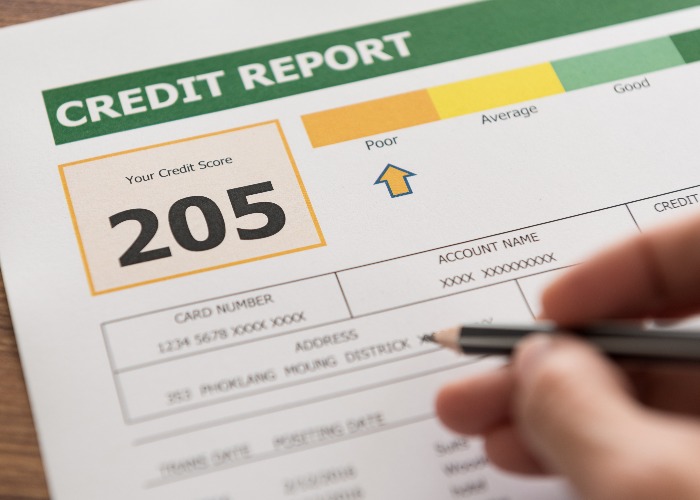From missed payments to moving around a lot, what damages your credit report

The better your credit rating, the cheaper it is to get credit. Here are the most common mistakes that do damage to your credit score.
Sections
Missed/late payments
Late payments remain on your credit record for a whopping six years. That’s an awful long time for that black mark to sit there, casting doubt for any lender as to whether you are a responsible person to lend to.
After all, if you’ve missed a payment with another lender, what’s to say you wouldn’t miss one with them too? Can you manage credit responsibly? Are you overburdening yourself?
Check your credit record for free
Repeated applications for credit
Your credit record doesn’t actually say whether your applications for credit have been successful.
But if a lender sees that you have applied for credit from three different sources over a short period of time, they are going to assume that you’ve been turned down at least once. It also makes you look desperate, calling into question whether you are a good person to lend to.
No electoral presence
When you apply for credit, the lender wants to be certain that you are who you say you are. One way to do that is to compare the address details provided in your application with your record on the electoral roll.
If you’re not on the electoral roll at all, or are registered there on an old address, big alarm bells will go off. Is your application genuine or fraudulent?
Make sure you have these details up to date before you even think about applying for credit! You can get your name added via the GOV.UK website.
Check your credit record for free
A bad financial association with someone
Many of us will be ‘financially associated’ with someone.
This means that we have held some form of joint account with them. So, for example, you may have a joint account with your partner.
This association can be a positive or a negative, depending on how well that person manages their own credit rating. If you’re associated with someone who has missed a few payments in the past, it can actually damage your rating too!
Too much credit already!
When a lender is deciding whether to approve you for a loan, credit card or mortgage they want to see how good you are at managing your existing credit arrangements.
As such, they’ll look at how much credit you already have available to you, not just what credit you’re already using.
So, for example, you may only owe £200 on your main credit card, but you could have three old credit cards sitting at the back of your drawer with hefty, untouched credit limits at your disposal.
If you don’t need those old credit accounts, close them. It’s also a good move to keep the balances on the cards that you do use at less than 25% of your credit limit.
This low ‘utilisation’ is viewed as a positive, as it suggests you’re lower risk. So voluntarily lowering your credit limit may actually harm the way you are viewed by future lenders.
Check your credit record for free
Moving house – or changing job – too much
Lenders like stability. If you regularly move address, constantly moving employer, you may not seem like a great person to lend money to.
Using your credit card at an ATM
Withdrawing cash on a credit card from an ATM is a terrible move, as you’ll be charged massive rates of interest.
However, according to Experian, these sorts of withdrawals are also recorded on your credit report. And if a lender sees that you are doing it regularly, they are unlikely to be too enamoured with the idea of lending you money.
Made one or more of these mistakes? Head this way to find out how to repair your credit rating.
Comments
Be the first to comment
Do you want to comment on this article? You need to be signed in for this feature